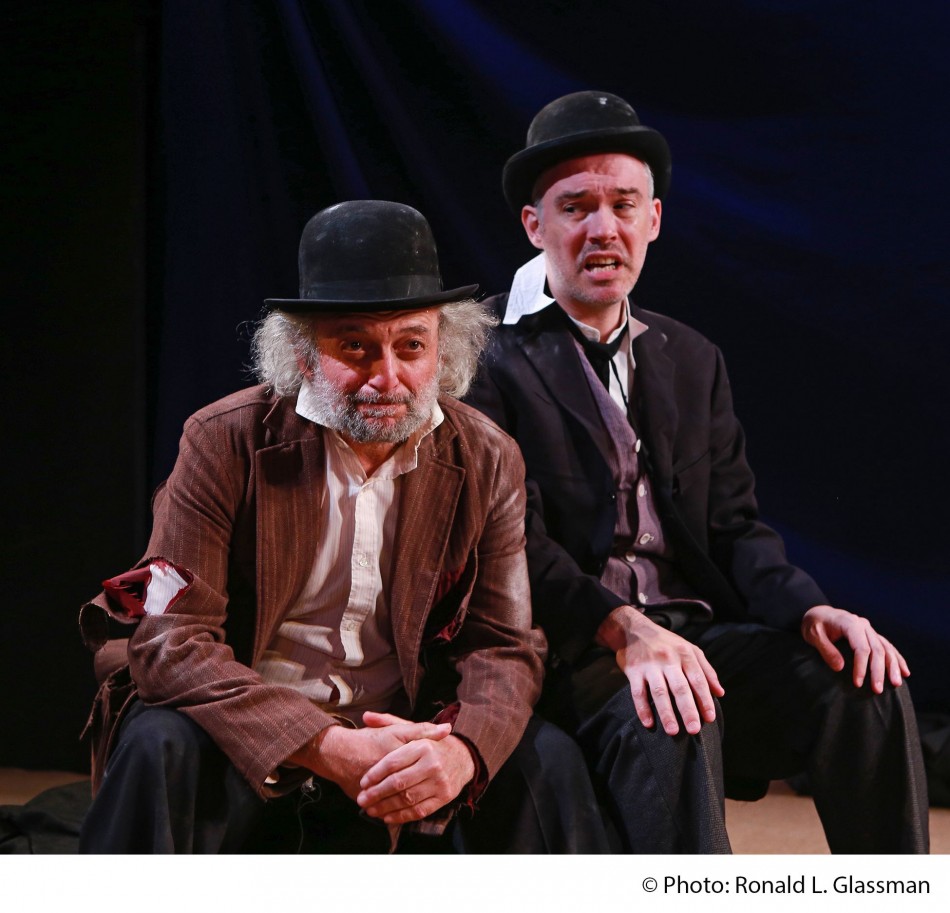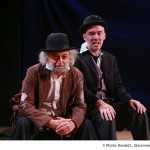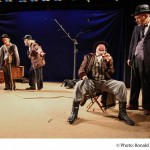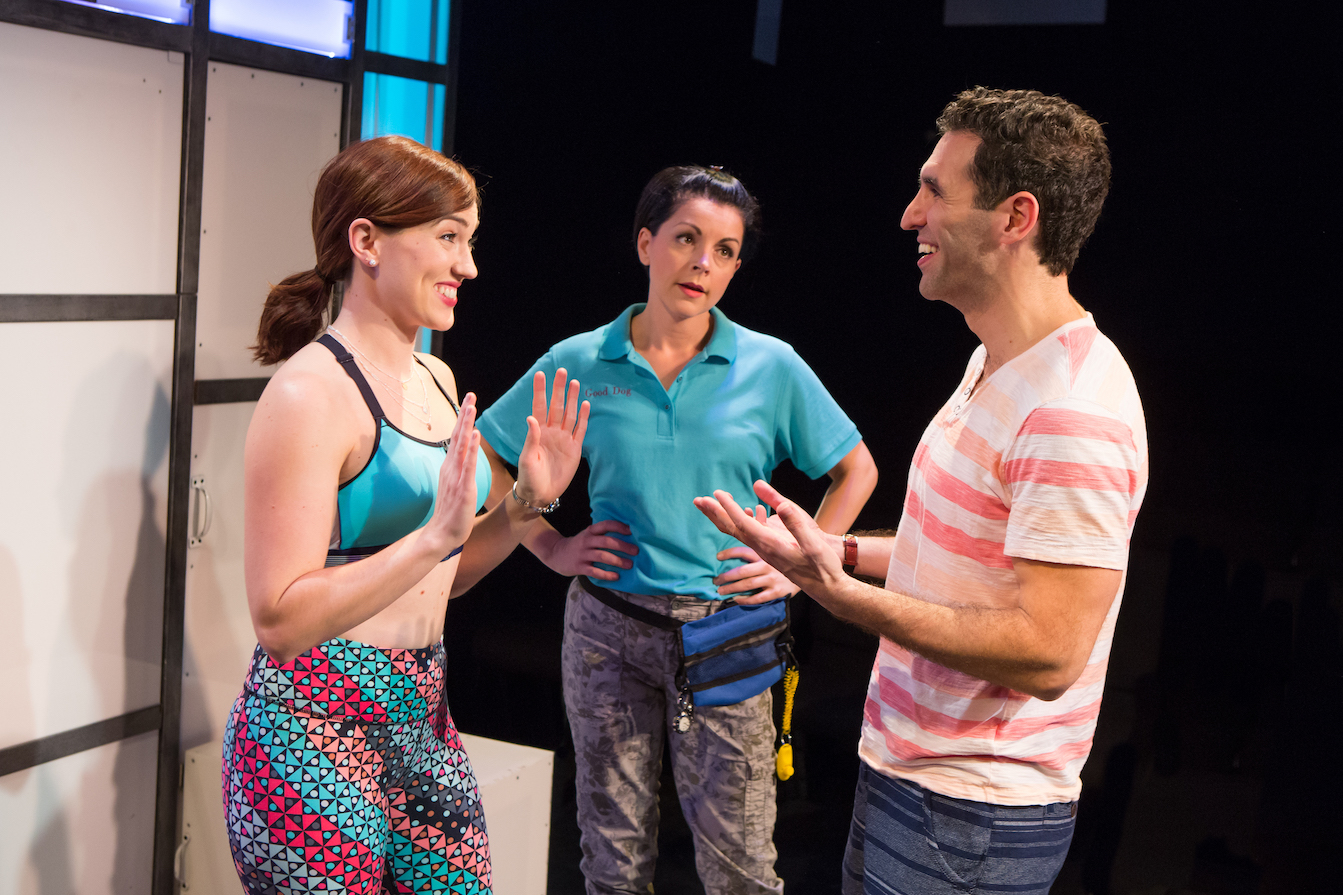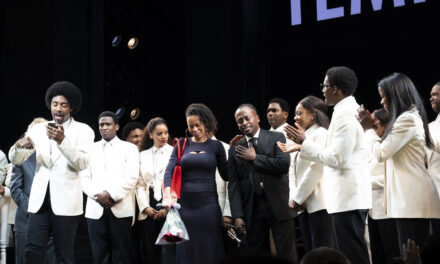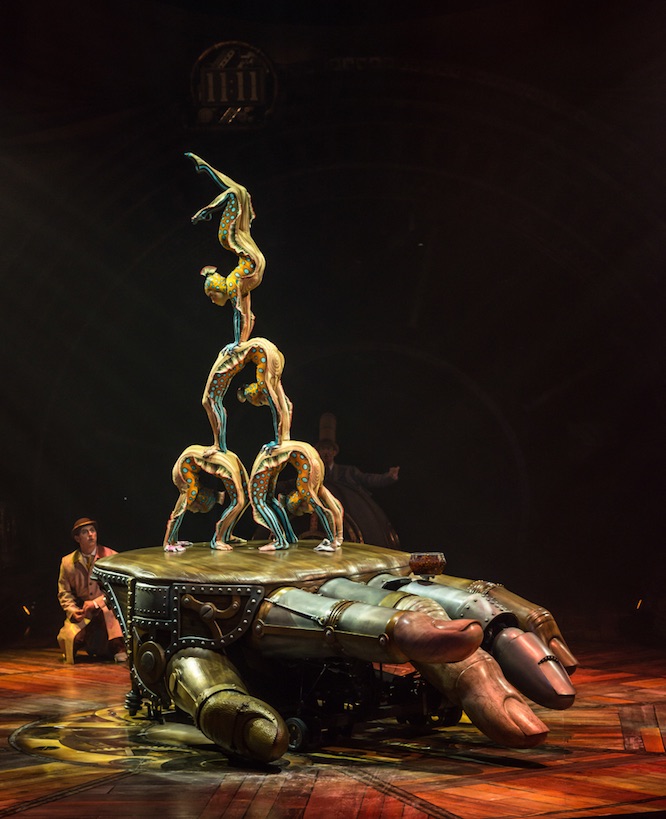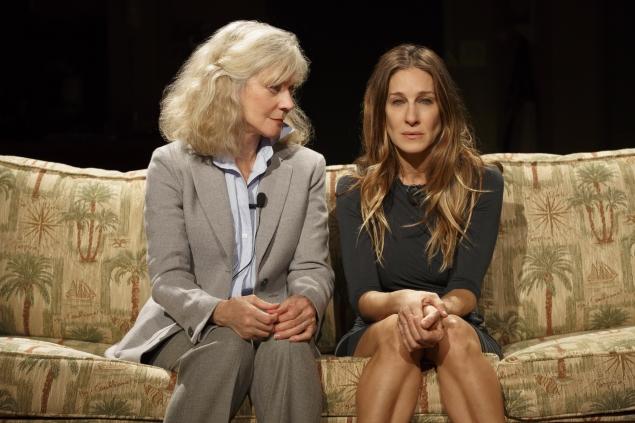By Myra Chanin
I was raised in a multi-generational Russian-Jewish immigrant household where Yiddish was the mother tongue. A Jewish-American-Princess? No way. I was their Frog Princess, a gifted daughter who never did anything right. I grew up watching my mother wait for her own Godot, Godot representing the day I became as devoted to her as she was to her mother.
Our extended family shared the first and third floors of a Philadelphia brownstone in a neighborhood that had seen better days. Only my grandmother was semi-observantly religious. She lit Sabbath candles and kept kosher, except for the bacon she fried to fight my malnutrition. I was only 30 pounds overweight.
My grandfather attended vaudeville shows at the Girard Theater on Saturdays instead of going to services, but always brought a reeking schmaltz herring home from a near-the-shul appetizing store as proof of prayer. Surviving a brutal pogrom in Russia had turned my mother into a sucker for any radical political movement that promised power to the people, as long as the people empowered didn’t include Cossacks on horseback.
I was enrolled in whatever politically incorrect Yiddish language Sunday school my mother managed to cajole me into attending. First, the Communist- International Workers Order around the corner where I won carved book-ends for reciting multi-paged Yiddish narrative poems about barnyard fowl that I had learned by rote rather than through reading. When the IWO went kaput, she transferred me to the Socialist-oriented Workmen’s Circle where my retarded-educable classmates flew paper airplanes during lectures about botched revolutions and we sang melancholy Second Avenue heart-rending favorites like Pappirossen about a young boy’s unsuccessful attempts to sell individual cigarettes during a freezing capitalistic downpour.
My childhood left me with a nostalgia for schmaltzy Second Avenue show tunes and a love of Yiddish, which is why I was seeing Varten af Godo, which had been translated into Yiddish by Shane Baker, a righteous Gentile who may be more fluent in Yiddish than many of the residents of Boro Park. Baker is so entranced with Yiddish culture that I sometimes wonder if he hadn’t been involved in a reincarnational mishap where his soul fought the soul of Aaron Lansky of the Yiddish Book Center for a genuine Jewish body … and Lansky won.
Varten af Godo, a hit when produced last year in New York by the New Jewish Rep and the Castillo Theater, next went abroad and also killed at the Happy Days Enniskillen International Becket Festival in Northern Ireland and has returned home for the First Irish New York Festival. Howz that for a quintessential example of multi-cultural mishmash?
Did I like it? Yes, more than any other version of Waiting for Godot I’d ever seen. The English versions never intrigued me. They reminded me of watching the eighth inning of a possible no-hitter and wondering when would somebody manage to hit the ball and give me my money’s worth. Presenting Vladimir (David Mandelbaum) and Estragon (Shane Baker) as Holocaust survivors came the closest to my vision of them as Hassidim in Tfillin and Tallisim awaiting the arrival of the Messiah.
In addition, I was enchanted by the overture and interlude music played on the piano by silent film, master accompanist Steve Sterner, which contained many of the Workman’s Circle Top Twenty from Oy Mama, Bin Ich Farliebt (Oh, Mama, Am I in Love!) to Mein Shteytele Beltz (a melodic waltz that pays nostalgic homage to a home town with the world’s most unmellifluous name) and finally the perennial Pappirossen, with the child cigarette seller still shivering in the freezing rain and still unable to attract a customer. Even better, I actually remembered most of the words to these songs which reassured me that I didn’t have Alzheimer’s … yet.
This lively production, beautifully directed by Moshe Yassur, didn’t allow me to sit idly by and just watch nothing happening. I multi-tasked and participated. Checking the English supertitles, when I didn’t quite catch a Yiddish phrase, allowed me to switch my focus between the action to the present and future script as well as certify that the supertitler had done right by Shane! I very much liked the body language of the performers. They moved like depressed Jewish clowns.
I can see why this play appeals to prisoners. To Estragon and Vladimir, Lucky (Rafael Goldwaser) and Pozzo (Allen Lewis Rickman) life is a prison, although I thought Rickman was a bit too convivial as the mean Pozzo. .I think the plot appeals less to pro-active women like me. I’d never wait for Lucky to stop blathering if I could shut him up instantly by simply removing his hat. He’d be bareheaded before he finished his third sentence.
If you long to hear Yiddish spoken or like to hear music in a minor key, this is the place for you. If you enjoy Becket, you might find Varten af Godo’s different approach a breath of fresh air. Remember, they loved it in Ireland, which convinces me that the Irish are Israel’s lost tribe. Could Erin Go Brach actually mean Mazel Tov in Gaelic? Why not? Who could that hurt?
*Photos: Ronald L. Glassman
27 Barrow Street
7th Avenue & Bleecker Street
Thursday thru Saturday at 7:30 pm.
Sunday at 2 pm. Now until September 21st.
(212) 868-4444


